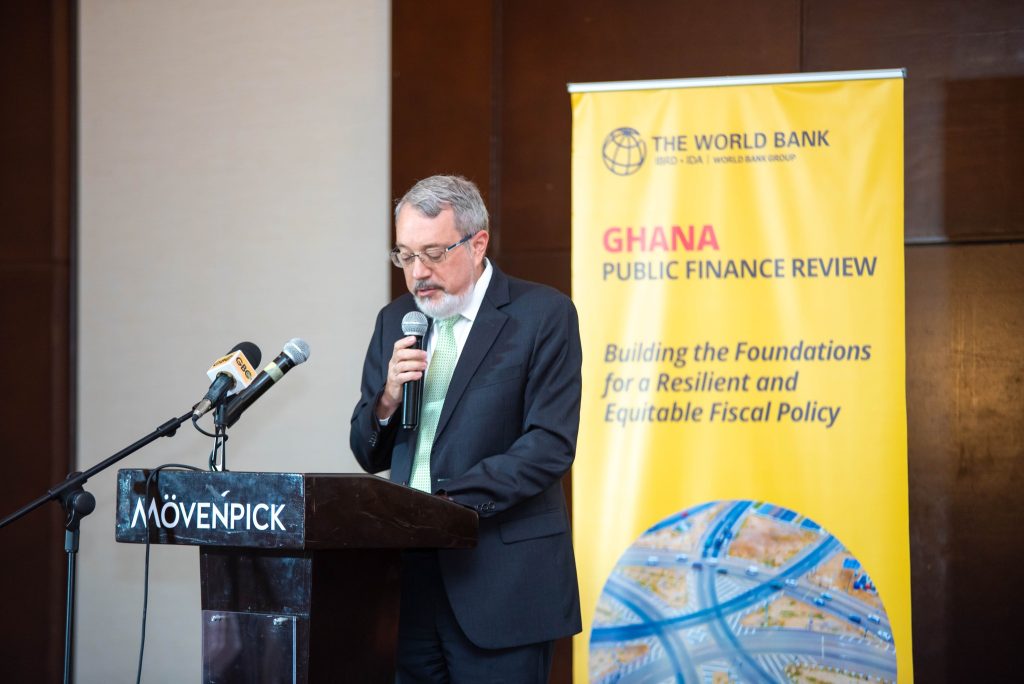|
Getting your Trinity Audio player ready...
|
Mr Robert Taliercio, the World Bank Country Director for Ghana, Liberia and Sierra Leone, has called on the government to pursue fiscal measures that support economic growth and protect the poor and vulnerable in society.
He said as government stayed on cause to stabilise the economy through fiscal consolidation and debt restructuring in the aftermath of the 2022 economic crisis, it was critical to ensure that fiscal adjustments were fair and efficient.
“It is crucial to protect pro poor and pro-growth investment, while enhancing domestic revenue mobilisation. Additionally, Ghana must address the increasing fiscal liabilities stemming from the energy and cocoa sector,” he said at the launch of the Ghana Public Finance Review Report on Wednesday.
The report, titled: “Building the Foundations for a Resilient and Equitable Fiscal Policy”, provided an in-depth analysis of the efficiency, equity and impact of public revenue and expenditure with focus on selected critical issues.
It examined domestic revenue mobilisation, public expenditure efficiency, public financial management, public sector wage bill and efficiency of human development and agriculture spending. Sharing the findings of the report, Mr David Elmaleh, Senior Economist at the World Bank, noted that the lack of fiscal discipline and expensive fiscal response to global shocks plunged Ghana into a full-fledged crisis in 2022. He explained that fiscal indiscipline was marked by weak budgetary institutions, high fiscal liabilities and insufficient revenue collection.
“The prolonged and expensive fiscal response to the COVID-19 and the subsequent deterioration of global conditions plunged Ghana into a full-fledged crisis and into debt distress” he said. He highlighted the high tax exemptions leading to revenue loss of 3.9 per cent of Gross Domestic Product (GDP); high government expenditure characterised by overspending during election year and non-discretionary spending and the inefficient public spending on education with less focus on preprimary and primary level.
“Financing shortfalls for National Health Insurance Scheme are undermining the progress in health” he said, and that: “The NHIS no longer receives its full levy allocation due to the capping law.” Madam Tamoya Christie, Senior Economist and co-author, shared medium term policy recommendations of the report, which, among other things, encouraged fiscal discipline and oversight by entrenching fiscal rule, effective spending controls, and better oversight of contingent liabilities.
It called for the sustainable enhancement of domestic revenue mobilisation by broadening the tax base and strengthening the tax administration to support Ghana’s development goals. “Target investment spending to support economic transformation and climate resilience through infrastructure development and technological innovation,” she said.
Dr Alex Amankwah-Poku, a public financial management practitioner, speaking on behalf of the Minister of Finance, said the findings would serve as a valuable guide for government in the formulation of long-term policies to create a resilient economy.
Source: GNA
CHECK THIS: Ghana’s Rising Star Bravaddo Releases Thought-Provoking Track “CAREFUL”


